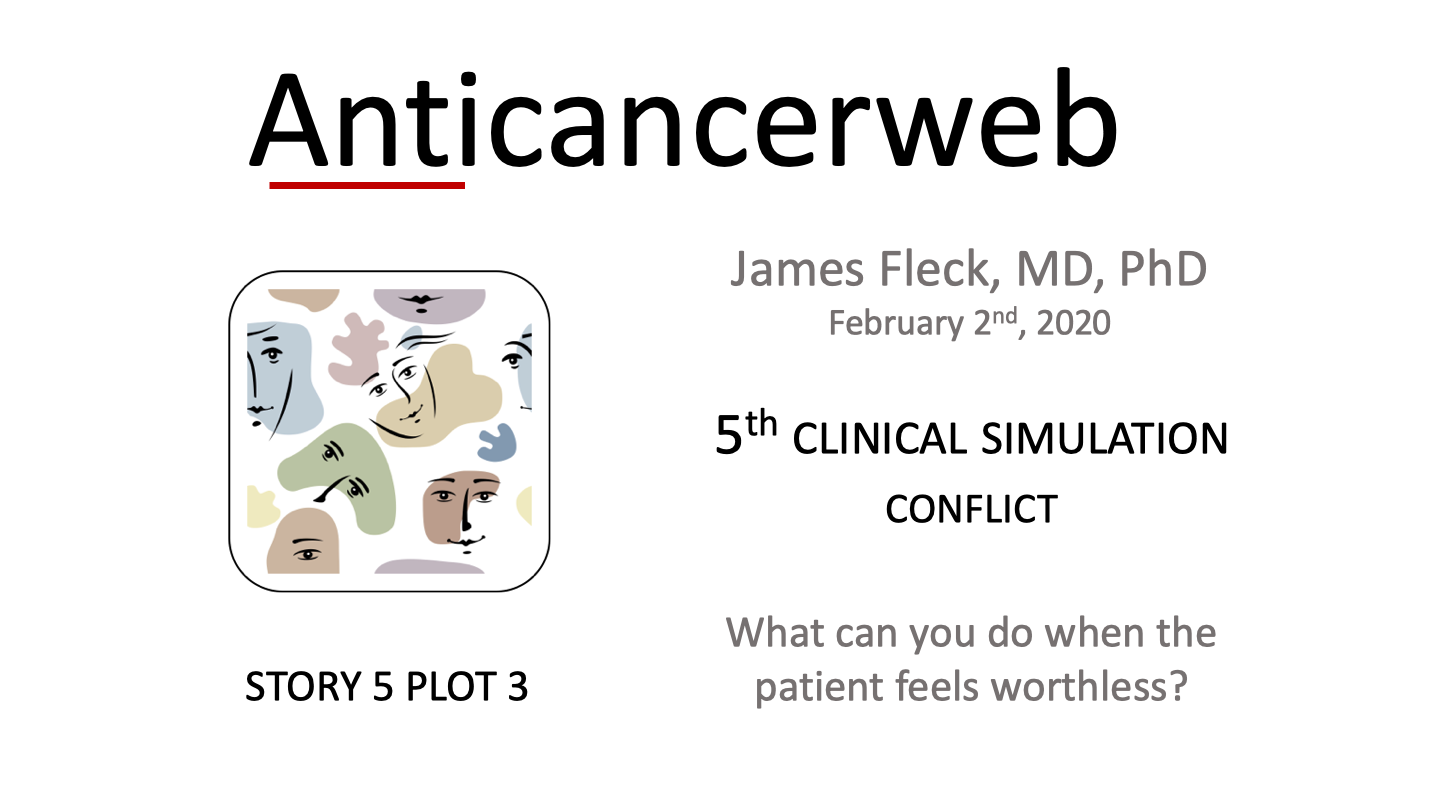
Working in the Cloud | Conflict
How to deal with the feeling of worthlessness
(Fictional narrative by the doctor)
James Fleck, MD, PhD: Anticancerweb 02 (02), 2020
Ten days passed when the surgeon called me.
He had recently examined Milton and was discharging the patient.
He had already removed the surgical stitches and did not report any postoperative complications.
I thanked for the contact and informed him about Milton's adjunctive treatment plan.
Coincidentally, a few minutes later, Milton called me.
He said he was fine, but asked to speak to me in person as soon as possible.
I was almost done with my appointments that afternoon and I invited him to come to my office, immediately.
Milton arrived with an expression of annoyance.
I asked what he was feeling.
Expressing unusual aggressive behavior, he said his self-esteem had been severely affected.
That morning, he was notified by the company's director that the recent diagnosis would require a temporary suspension of his activities. Although he was kind, he argued that during the treatment period, Milton should not take any responsibility. His projects and clients would have been transferred to a colleague. Milton would continue to be paid, maintaining his new residence and would only resume his activities when treatment was over.
Milton was a hard worker.
He had been in that company for over twenty years and had never missed an appointment.
He always exceeded all expectations and goals and was feeling outraged.
He underestimated his health problem, making a partial judgment of the treatment induced limitations.
I would make him better understand the company's decision.
I explained that his treatment would not be easy and that he would often feel unwell and unable to perform some demanding tasks. Physical or emotional distress should be avoided. Keeping full activity would eventually create some embarrassment both for him and the company. I made him understand that the company was correct, as had given all the necessary support and maintained in perspective his return. I explained that the company wasn't doing it out of charity, but mainly because he was an excellent professional and they didn't want to lose him.
Milton thought about it and accepted my rationale, but argued that it would be very difficult to remain inactive for six months. He considered himself an enthusiastic man, full of energy and creativity. He knew that he used to be a little hyperactive and that he needed to converge his proactive disposition into something productive.
I tried to have a more comprehensive view of what was happening.
Milton hadn't shown much concern about the disease. For some unexplainable reason, he was convinced that he would be healed. In his mind, the chance of curability had always been 100%, although I had already warned him that we were working with a much smaller overall survival rate.
Interestingly, I had already noticed that, in the patient's mind, statistics were more useful in gambling than in health management.
Even based on accurate data, each patient used to create his own vision of the future and struggled to achieve it.
I had learned that I should respect this peculiar attitude. However, I needed to manage the right path to be followed.
After thinking for a few seconds, I explained that, despite the treatment-induced limitations, this would not restrict creativity.
Sometimes, more time available would help people to reflect on the best orientation in their life projects.
I suggested that he consider this alternative view.
Showing a little uncertainty, Milton agreed…
We concluded that we would end the meeting and return to the topic in two or three days.
In less than 24 hours, Milton came back…
He said he would have found an alternative.
He had contacted a group of professionals working on software development for medicine. He proposed to return to the subject of cloud computing. Based on his previous experience, he was very enthusiastic about the idea, arguing that he would continue to exercise his creativity throughout the treatment period. He said it would work as an occupational therapy, as he would not support the idea of remaining passive, just watching the progress of his treatment. He explained that he could work from home and that there would be no excesses.
Milton had been very convincing, making me agree with his suggestion.
We set the date for starting adjuvant treatment.
Before leaving, he asked to take with him all the information material that I used to make available to patients in the office. He would use it as a model in the development of his ideas.
To be continued in PLOT 4 (climax) …
* Attention: The story 5 will be published sequentially from PLOT 1 to PLOT 6 and you will always see the most recent posting. To read Story 5 from the beginning, just click in the numbered links located at the bottom of the homepage.
© Copyright Anticancerweb 2020
James Fleck, MD, PhD: Full Professor of Clinical Oncology at the Federal University of Rio Grande do Sul, RS, Brazil 2020

Please login to write your comment.
If you do not have an account at Anticancerweb Portal, register now.